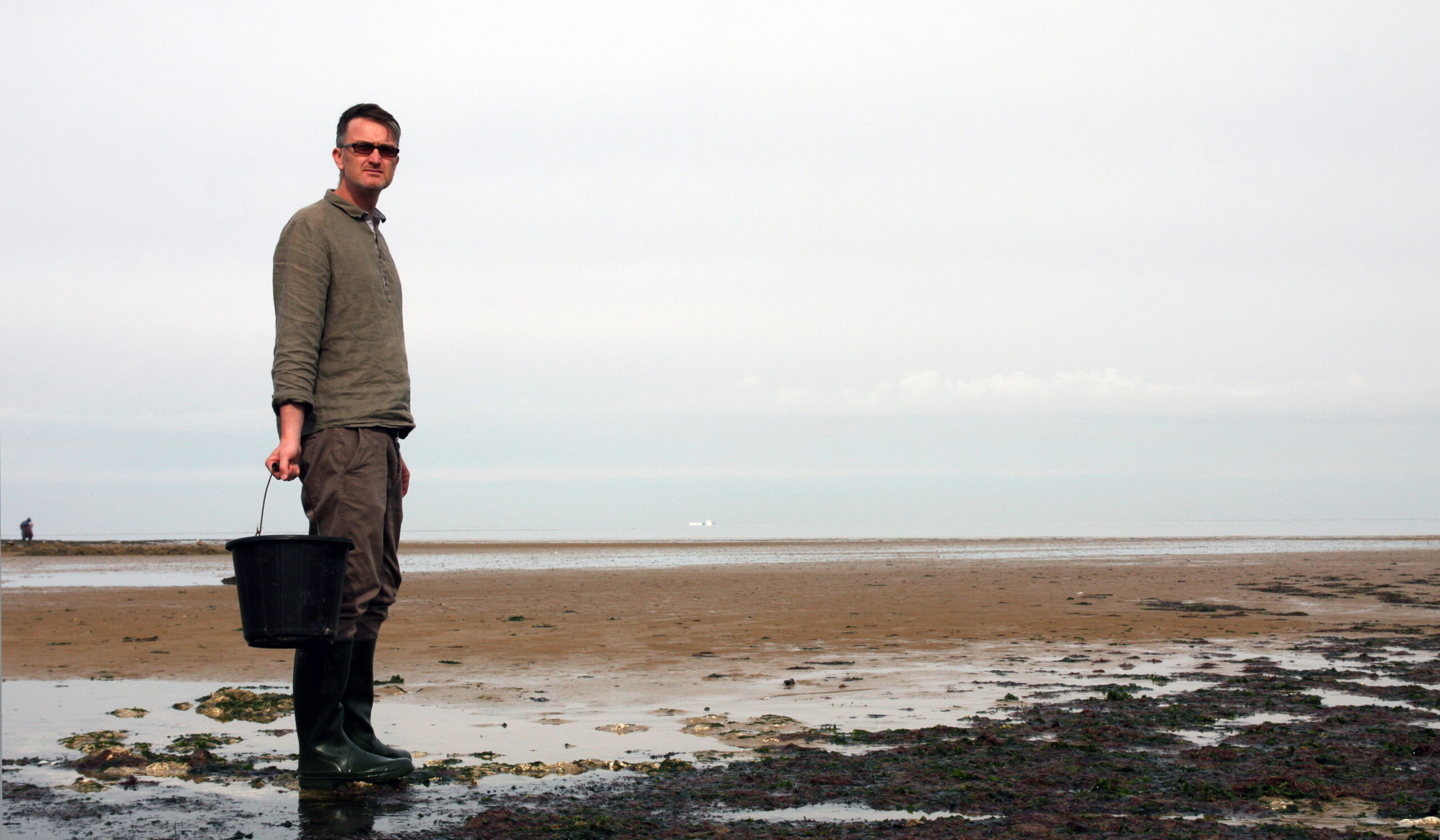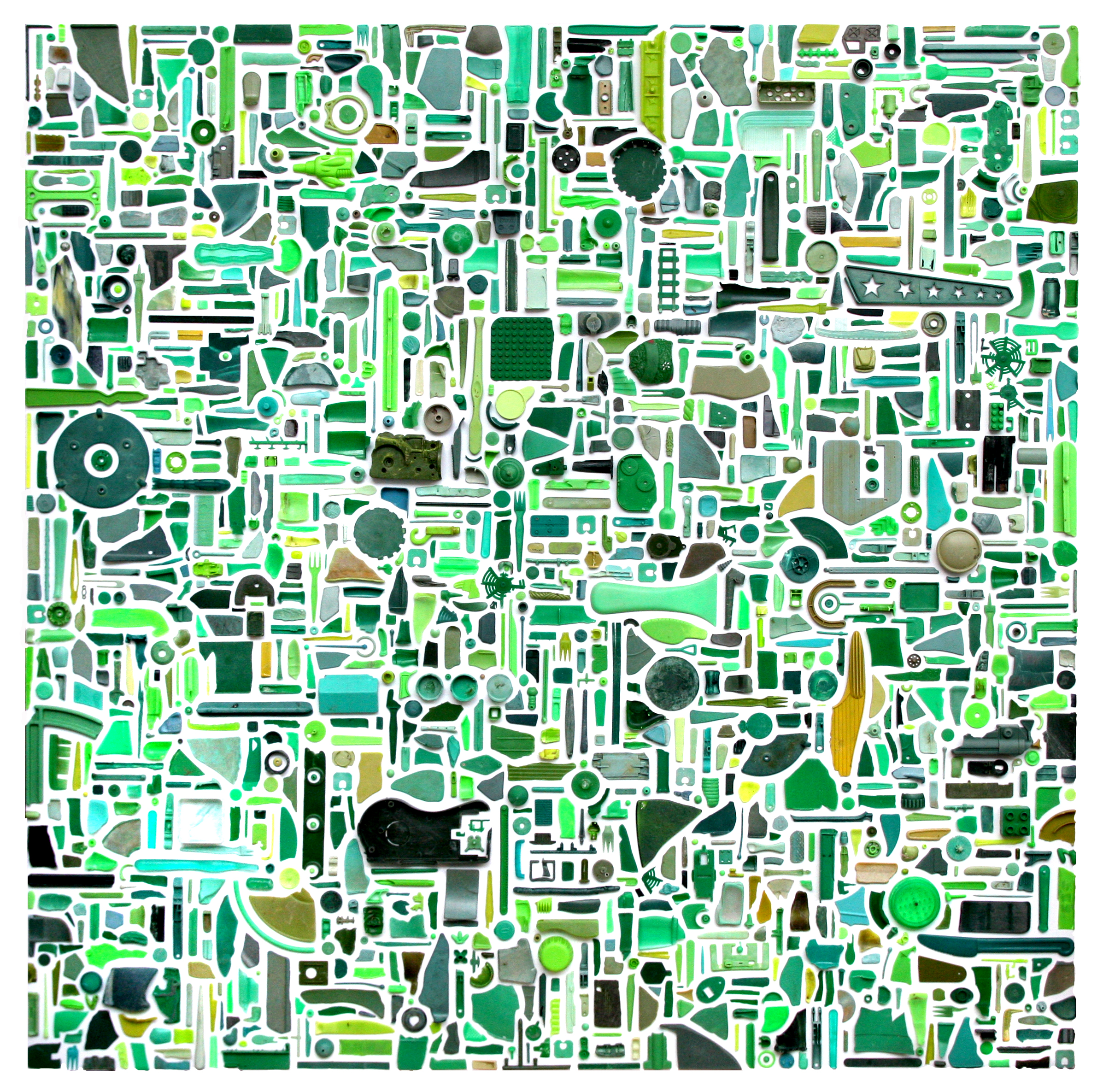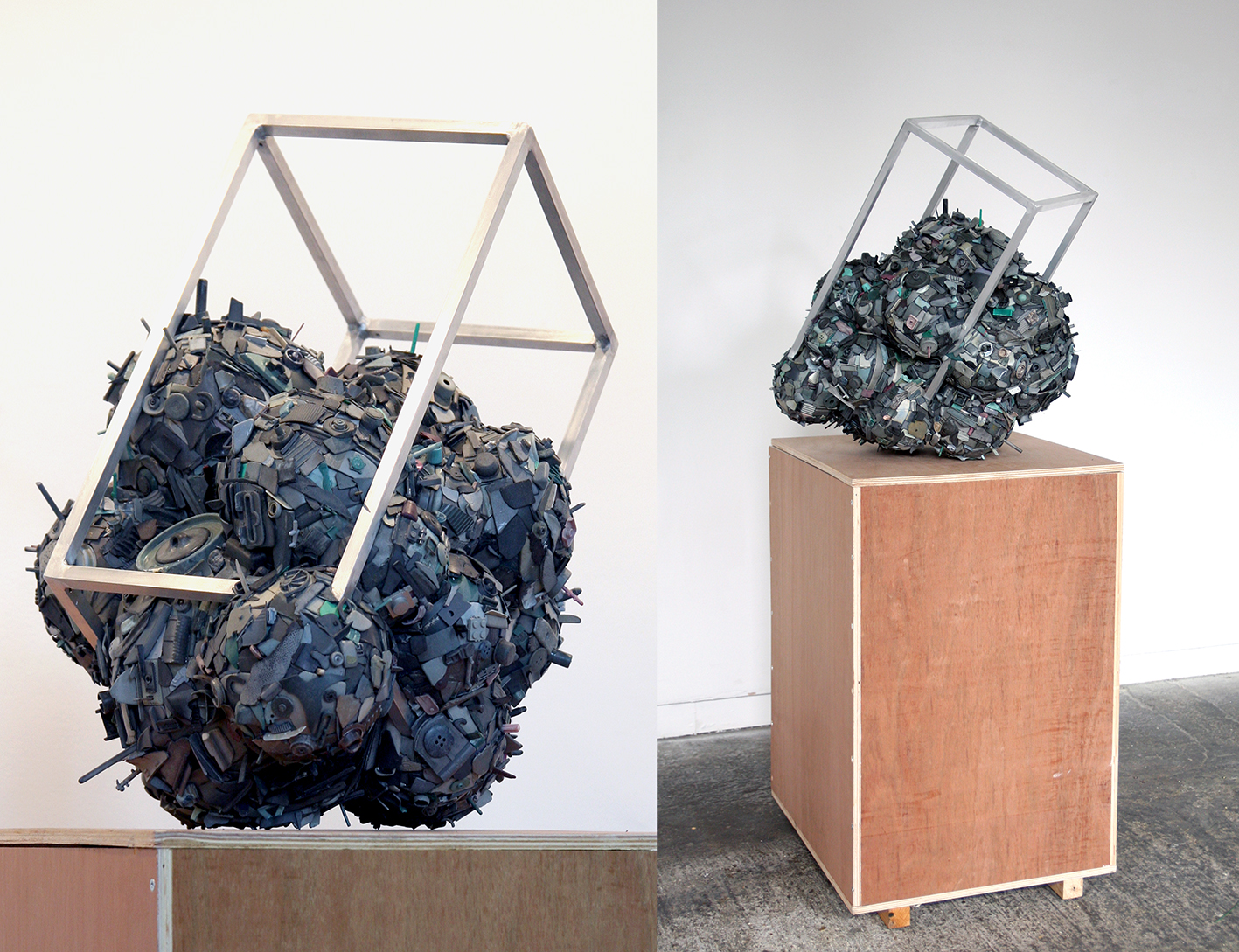Steve McPherson: marine plastic artist
Steve McPherson collects plastic marine litter from the beaches along the north Kent coast, and from it creates statement artworks that are both questioning and beautiful
Have you always had an interest in using discarded coastal plastics and found objects in your work?
I grew up on this coast, and the main beaches I go to for collecting plastic are those I spent my childhood on. I’ve been collecting objects from the beach for most of my life, from bits of unusual driftwood, to fossils, and other interesting flotsam scattered on the tideline. This moved into collecting with a purpose, to use materials from the beach in the artworks and visual journals. Increasingly plastic was becoming more noticeable amongst the natural colourings of the sea shore, and I would pick up the odd small plastic figure, or toy. I ignored the many broken pieces and shards, which outnumber the more recognisable objects by hundreds, but had a thought that someone should pick this stuff up and do something with it.

Steve McPherson
Do the materials you find motivate the final piece? Or do you have a finished artwork in mind then find materials to fit it?
Thy idea behind what to create depends on many things, sometimes it’s an image I’ve been carrying around for a long time in my head, sometimes it’s a solid concept, other times an emotion or feeling dictates. I’m also controlled by what I can and can’t find, and what I have in my reserves of plastic. I rarely go out to look for a specific item or colour, it’s more like take what you can while you can, before the tide comes and covers the beach.
Do you ever think about who discarded a particular piece, and what their story is?
I constantly bring myself back to the user of the items I find, and wonder about who they were and why they may have lost or thrown away the object now in my hands. I’ve made a whole series of works using this very notion, where the objects are displayed alongside a piece of narrative text, and a small potential history of how or why they ended up on the beach.

Steve McPherson
What’s your process? Do you collect lots of debris in one go and then make a piece? Or a small amount over time and then begin the artwork?
I just collect what I can. Then there is a process of cleaning and sorting in my studio – I sort by type and colour, although this is a particularly difficult for me as I’m colour blind. It’s a long and frustrating process when you can’t tell if the object in your hand is blue or purple, red or brown, grey or green. But I leave it down to my own perception and the anomalies end up in the artworks. That’s why in a blue piece you may find purple and green, in a yellow piece green and orange.
The idea that I have at the time informs how I use the plastic, but artworks take a couple of months to make and become increasingly difficult as they progress. It’s like creating a jigsaw without an image and thousands of pieces to search through to find the one that fits. I don’t alter the materials in any way, there is no cutting, reshaping, or changing of colour. I want to stay truthful to the objects that I find, and use them with integrity.

Steve McPherson
What do you want your work to say?
I feel that my works have many levels of meaning. I am interested in the objects as 21st-century archaeology, as representatives of our time in history and of the people who made, used and lost them. Like many historical archaeological finds, this debris provides the evidence of our culture. I’m also interested in the lost object as a subject, and how they may be imbued with the memory of the people who left or lost them.
The environmental subject is an obvious but important aspect of my work. We’re still in the times of oil dominance, and plastic is a product of that industry. Increasingly it’s becoming an environmental problem, not just in the sea but on land as well, and my works usually raise questions about our cultural and person consumption. Plastic may still be in the environment for thousands of years, after we are long gone.
Before you go...
...fancy automatic entry to all future competitions?
Simply register online today for FREE and you will get:
Automatic entry to all current and future competitions.
Access to Reclaim Inspiration - an online visual pinboard for saving all your home and style inspiration.
A regular newsletter of inspiration, ideas and advice.

Save all your articles in one place
Become a Reclaim Member to save all your home and style inspiration. Simply login or register online today for FREE and you will get:
Automatic entry to all current and future competitions.
Access to Reclaim Inspiration - an online visual pinboard for saving all your home and style inspiration.
A regular newsletter of inspiration, ideas and advice.








